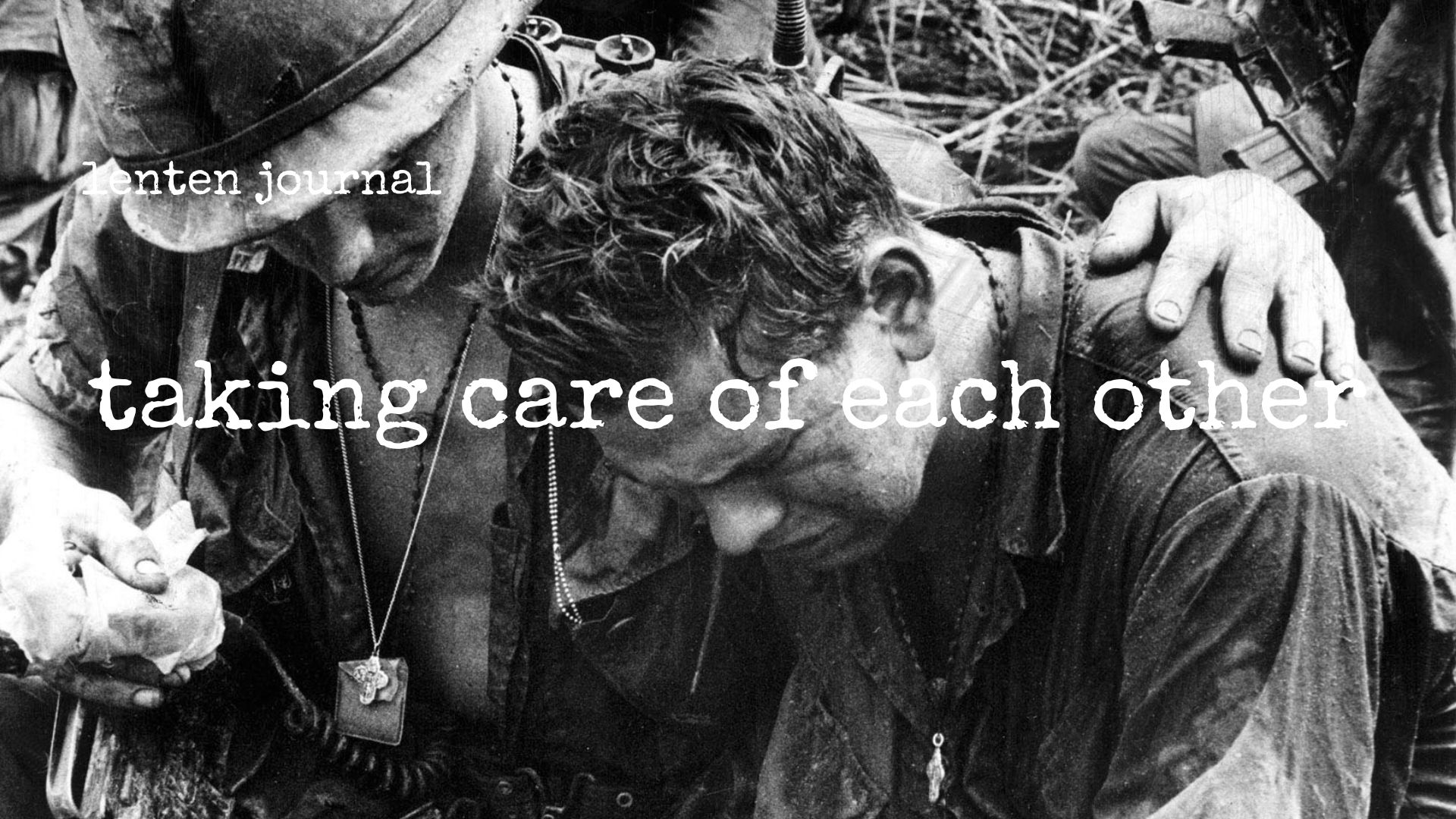One Saturday morning when I was working as a Creative at the Apple Store in Durham, a man showed up for a training appointment with a bag over his shoulder and his iMac in his arms. We set up his computer and I asked what he wanted to work on in our hour together. I was not expecting the story that unfolded.
The man told me he had served in Vietnam. The job of his company was to go first and clear places where helicopters could land. He carried a tape recorder with him and periodically his group would make a tape to send back to the States to their loved ones. They had almost completed clearing the top of a small mountain and were taking a rest, and making a tape, when they came under fire and rushed to get into the bunker they had just completed. He forgot to turn off the tape recorder. When they got back to their base and he listened to the tape, he realized what had happened.
“It’s ten minutes of us taking care of each other,” he said.
He didn’t send it to anyone, but he kept it–for forty years. A couple of days before he came to the store, he was finally able to get it digitized. He also had a bunch of photographs of his team converted as well. Now he wanted to learn how to use iMovie to let the voices be the soundtrack under the images so he could share it with those who were still living.
We worked on the basic information he needed and then I told him I was going to sit across from him while he worked because I knew the pictures were very personal and they were not mine to see. If he needed help, I would be right there. He stayed at the table for about two and a half hours, long past his appointment. As he worked, I could see his face over the top of his monitor. From time to time, his eyes welled up; sometimes he smiled.
When he finished, I showed him how to burn the movie on to a disc (it was that long ago) and he thanked me for my help. He never showed me the movie.
I thought about him today as I drove home from a veteran’s coffee hour in another Connecticut town. I was invited by a member of my church who works with and writes a lot about veterans. They wanted me to come because the speaker was a man who was drafted in 1967 and served in Vietnam, and then had become an Army chaplain after he came back from his tour of duty. He is now in his late seventies, I’m guessing.
Perhaps because of my age, when I think of Vietnam soldiers, I picture young men and women–like the photographs we used to see in TIME or LIFE, or the clips on the evening news. But we have all grown old and our memories of the war and all that went with it have aged as well. They have become stories. In Tim O’Brien’s book about Vietnam, The Things They Carried, the narrator says,
And sometimes remembering will lead to a story, which makes it forever. That’s what stories are for. Stories are for joining the past to the future. Stories are for those late hours in the night when you can’t remember how you got from where you were to where you are. Stories are for eternity, when memory is erased, when there is nothing to remember except the story.
As he stood in front of the group of men and women whose life experiences resonated with his, the chaplain, now retired, offered a detailed account of his company being ambushed somewhere in the jungles of Vietnam. Twenty of the twenty-seven soldiers were “dusted off” (which I learned means evacuated because of injury or death); seven survived unwounded. He, too, was telling a story of them taking care of each other. In the midst of it all, he said, he promised God he would do anything if they could live through it. Then he smiled and said, “Becoming a priest wasn’t what I meant.”
The last draft lottery occurred on March 12, 1975, exactly three months after my eighteenth birthday. though the last draft call had been in 1972, my roommate and I scanned the numbers in the newspaper with some trepidation. My birthday, December 12, was 18. Had there been a call up, I would have been called. Whether I would have answered is another matter.
Learning about the war as an American living in Africa altered my perspective on combat in general and Vietnam in particular. I knew more about protest songs than I did about being a soldier. As I sat at coffee hour and listened to the chaplain share his story, I shared the room with about eighty men and women, all of whom had been in the military. The camaraderie was palpable. They weren’t gathered to hang on to old things; they were there because they felt understood by people who had been where they had been and seen what they had seen. As one who doesn’t encounter people who grew up like I did very often, I understand how valuable that sense of belonging is and how much it matters to tell stories of us taking care of each other.
Peace,
Milton

this is one of your best, Milton. I hope we all have stories of being taken care of, and lists of the people who have given that care. I certainly do. And I have an inkling of your life as an MK. You are an amazing, multi-faceted, multi-talented human. I am grateful that knowing Sid has brought me to know you as well.
Thanks, Noralyn
I am grateful for our connection as well.
Peace,
Milton